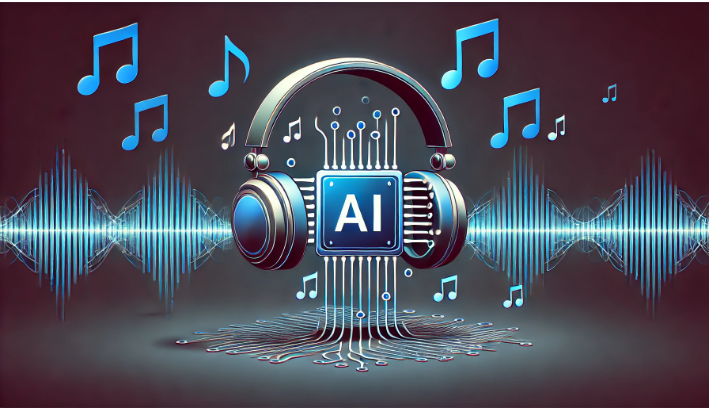From songwriting to sound engineering, the rise of AI-driven innovation and its impact on musicians, audiences, and the industry
The New Frontier of Music Creation
Music has always evolved alongside technology. From the invention of the phonograph to digital synthesizers, each innovation has changed how music is made, shared, and consumed. Today, artificial intelligence is emerging as a powerful new force, redefining what it means to compose, produce, and experience music.

Songwriting with Algorithms
Artificial intelligence systems are now capable of generating melodies, harmonies, and lyrics. These models learn from vast libraries of existing music, then create original compositions that mimic styles or blend genres. While some see this as a threat to human creativity, others view it as a collaborative tool—a digital co-writer that can spark inspiration and help artists push beyond their creative limits.

AI in Sound Design and Production
Beyond composition, AI plays a vital role in sound engineering. Machine learning algorithms can clean up recordings, isolate instruments, and even master entire tracks with precision. Producers use these tools to speed up workflows, achieve studio-quality results on tighter budgets, and experiment with sounds that would otherwise take hours to craft manually.

Personalized Music Experiences
Artificial intelligence is also reshaping how audiences engage with music. Recommendation engines analyze listening patterns to suggest songs tailored to individual tastes. More advanced systems can even generate custom playlists that adapt to a listener’s mood or activity, making the experience of consuming music more personal and immersive than ever.

The Rise of Virtual Performers
AI-driven virtual musicians and singers are stepping into the spotlight. These digital performers can sing, rap, or play instruments in real time, often blurring the line between reality and simulation. While controversial, their presence demonstrates how technology can extend the boundaries of performance, creating new forms of entertainment that challenge traditional definitions of artistry.

Opportunities for Independent Artists
For independent musicians, AI offers powerful opportunities. Automated mastering services, AI-assisted lyric generators, and predictive analytics provide resources that were once reserved for major record labels. This democratization of technology allows smaller artists to compete on a global scale with fewer financial barriers.

Ethical and Creative Challenges
As with any disruptive technology, artificial intelligence in music raises questions. Who owns the rights to an AI-generated song? Can algorithms truly replicate human emotion, or do they risk reducing art to formulas? Musicians, policymakers, and audiences alike are grappling with these issues as the role of machines in creative spaces continues to grow.
A Collaborative Future
Rather than replacing human musicians, AI may serve as a partner—an assistant that extends creativity, solves technical problems, and opens new artistic directions. The future of music could be defined by collaboration between human emotion and machine intelligence, creating works that neither could achieve alone.

The Digital Maestro’s Legacy
Artificial intelligence is no longer just a background tool; it is becoming a central figure in the world of music. From the writing desk to the recording studio, from live performances to streaming platforms, AI is shaping the way music is created and consumed. Its rise marks not the end of human artistry, but the beginning of a new chapter—one where the digital maestro plays alongside us in harmony.
